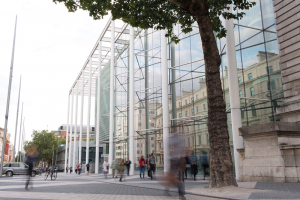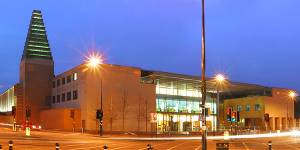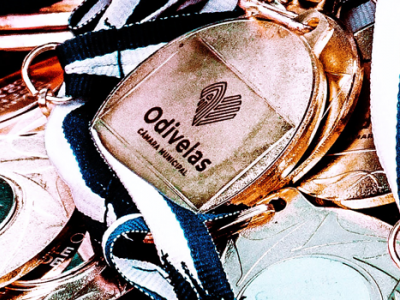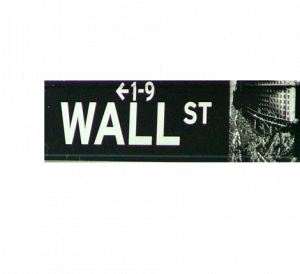Many students are considering an MBA in Retail, and that’s no surprise: retail and consumer goods are huge businesses. By some estimates the size of the global retail industry is nearly $25 trillion, driven by behemoths like Walmart, Home Depot, and Costco, as well as by e-commerce retailers such as Amazon and firms in the fast-moving consumer goods (FMCG) segment. Of course, these and other organizations are heavy recruiters of MBA graduates.
Unlike for other industry areas, MBA programs don't often offer specialized curriculums in these industries; you’ll find very few business schools offering specialized MBAs in Retail or Consumer Goods. This is why most students who want to break into retail, out of necessity, pursue general MBA programs. And that’s not usually a big deal, because most of the management knowledge that’s important to the retail industry is generally included in the core MBA curriculum.
However, a few business schools do offer specialized MBAs in the Retail or Consumer Goods industry. These programs typically cover a number of topics, from consumer insights to buying and retail strategy. Some of these programs may often touch on specific sections of the industry, including fashion retailing or grocery.
Depending on their interests, students may also opt for relevant functional concentrations like operations management or marketing, and find networking opportunities through research centers and student clubs.
The list below includes top business schools offering MBA programs in Retail or Consumer Goods, as well as those that place well in the industry. These programs stand out not only for their specialized coursework but also for the connections they offer through internships, alumni networks, and industry partnerships. Graduates from these programs often find themselves well-prepared for leadership roles in retail giants, e-commerce powerhouses, and FMCG companies. With a growing emphasis on data analytics, supply chain management, and consumer behavior, the best Retail MBAs equip students with the skills needed to navigate the rapidly changing retail landscape.
As the retail industry continues to evolve, especially with the integration of digital technologies and omnichannel strategies, having an MBA tailored to these dynamics can be a significant advantage. Whether you’re aiming to climb the corporate ladder in a global retail company or aspiring to innovate within the sector, a specialized MBA in Retail can provide the knowledge and network to achieve your goals.
Wisconsin’s Marketing MBA program in Brand and Product Management gives students a solid background in marketing, consumer behavior, and other topics important to the sector. MBAs can leverage Wisconsin’s Center for Brand and Product Management to find internships and jobs. Electronic retailers like Amazon recruit from the school annually.
View School Profile
About mid-way between Chicago and Cincinnati, students at Purdue – Krannert are close to some of the biggest consumer goods companies in the Midwest, including Proctor & Gamble. Students take advantage of this proximity: Typically, between 20 and 30 percent of the school’s MBA classes go into the consumer goods industry.
View School Profile
MBA and MSc students interested in retail can join the school’s FMCG, Luxury Goods and Retail Club, which investigates the inner workings of these popular fields. The school says that up to 14 percent of recent MBA classes have gone into the FMCG, luxury goods, and retail sectors.
View School Profile
Over the past few decades, Oxford's “Institute of Retail Management” has established itself as one of the premier retail-oriented research centers in the UK. For MBAs, the center offers a specialized eight-week elective course in retailing.
View School Profile
Although it varies, between 5 and 15 percent of Schulich’s MBA graduates typically go into the retail, packaged goods, and consumer services industries each year. Recruiters include many large Canadian-based retailers and multinationals, like Sears Canada and Loblaws.
View School Profile
Even though Carlson does not offer an MBA specialization in Retail or Consumer Goods, this doesn’t mean that the school doesn’t places in these industries: of the most recent MBA class, 10 percent went into the retail or consumer packaged goods sector.
View School ProfileSome 7 to 11 percent of Broad’s MBA classes of typically go into the consumer products industry. Graduates are regularly recruited by large firms like Sears and Mattel.
View School ProfileThe Fisher College of Business’ Nationwide Center for Advanced Customer Insights produces research that’s relevant to students interested in the retail or consumer goods sectors. In the past, grads have been snapped up by firms like Ascena Retail Group and Bath & Body Works.
View School Profile
India’s fast moving consumer goods (FMCG) sector is huge, and is growing every year. ISB graduates are realizing this: in recent years, between five and nine percent of the school’s PGP grads went into the sector.
View School Profile
Through Kelley’s Center for Education and Research in Retailing, MBAs can get hooked up with potential employers and attend relevant events. Although the school does not offer an MBA specialization in retail or consumer goods, in recent years, upwards of 16 percent of the MBA classes have gone into these sectors.
View School ProfileRelated MBA News
FIND MBA Updates Top 10 Lists by Specialization for 2020
May 26, 2020
Related Articles
MBAs in Retail Management: Adapting to the E-commerce Revolution
Aug 30, 2019
The advent of online retail has kicked off a jobs boom at companies like Amazon in the US and Alibaba in China. How are business schools responding?











